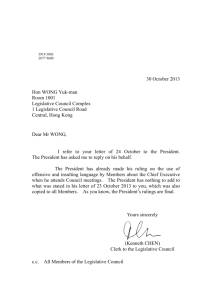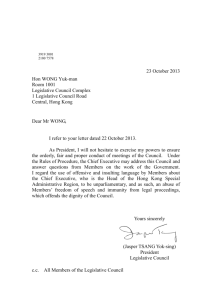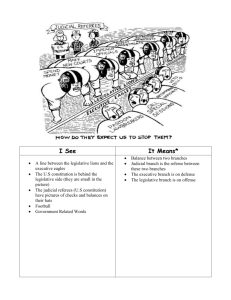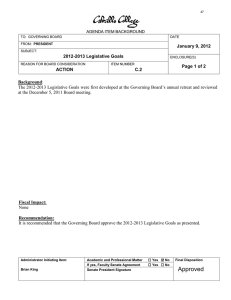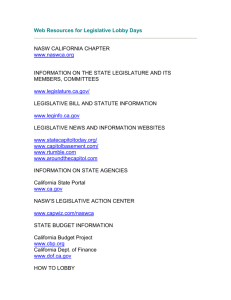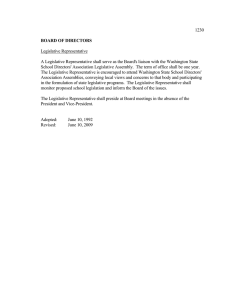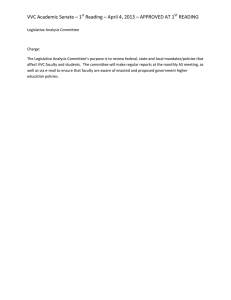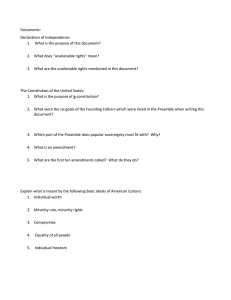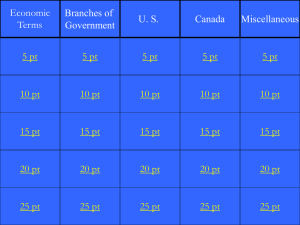17.03. Introduction to Political Thought Second Treatise of Government
advertisement
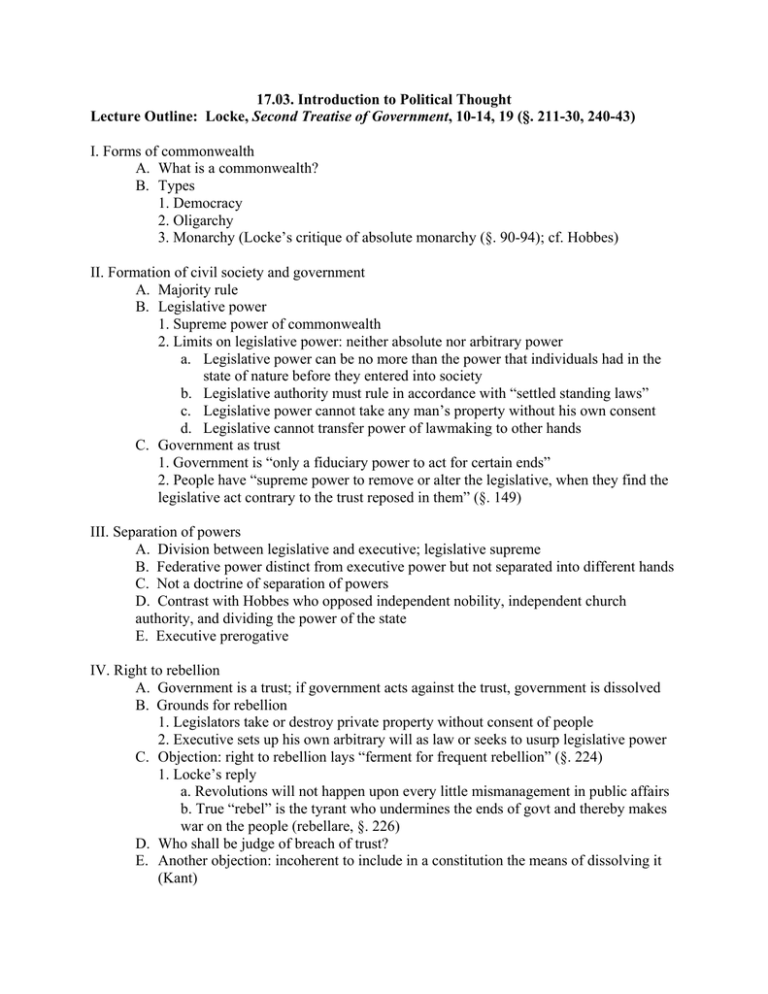
17.03. Introduction to Political Thought Lecture Outline: Locke, Second Treatise of Government, 10-14, 19 (§. 211-30, 240-43) I. Forms of commonwealth A. What is a commonwealth? B. Types 1. Democracy 2. Oligarchy 3. Monarchy (Locke’s critique of absolute monarchy (§. 90-94); cf. Hobbes) II. Formation of civil society and government A. Majority rule B. Legislative power 1. Supreme power of commonwealth 2. Limits on legislative power: neither absolute nor arbitrary power a. Legislative power can be no more than the power that individuals had in the state of nature before they entered into society b. Legislative authority must rule in accordance with “settled standing laws” c. Legislative power cannot take any man’s property without his own consent d. Legislative cannot transfer power of lawmaking to other hands C. Government as trust 1. Government is “only a fiduciary power to act for certain ends” 2. People have “supreme power to remove or alter the legislative, when they find the legislative act contrary to the trust reposed in them” (§. 149) III. Separation of powers A. Division between legislative and executive; legislative supreme B. Federative power distinct from executive power but not separated into different hands C. Not a doctrine of separation of powers D. Contrast with Hobbes who opposed independent nobility, independent church authority, and dividing the power of the state E. Executive prerogative IV. Right to rebellion A. Government is a trust; if government acts against the trust, government is dissolved B. Grounds for rebellion 1. Legislators take or destroy private property without consent of people 2. Executive sets up his own arbitrary will as law or seeks to usurp legislative power C. Objection: right to rebellion lays “ferment for frequent rebellion” (§. 224) 1. Locke’s reply a. Revolutions will not happen upon every little mismanagement in public affairs b. True “rebel” is the tyrant who undermines the ends of govt and thereby makes war on the people (rebellare, §. 226) D. Who shall be judge of breach of trust? E. Another objection: incoherent to include in a constitution the means of dissolving it (Kant)
